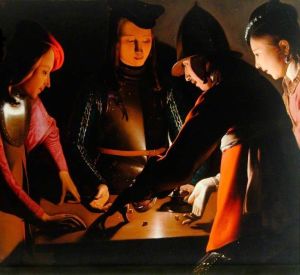
The guild sticks together and never looks down
Was Jesus a real person who actually lived, or is he instead an ancient fictional or mythological character?
Dr. Richard Carrier votes fictional or mythological. Carrier earned a Ph.D in ancient history from Columbia in 2008. Since 2014, his book, On the Historicity of Jesus: Why We Might Have Reason to Doubt has enjoyed popular success. However, the book was published by a university press (Sheffield Phoenix) specializing in biblical studies. The book was addressed to academics in that field, “the guild” as they style themselves.
Over the years, the Uncertaintist has covered some of the tense interaction between Dr. Carrier and members of the guild (link). We now await his follow-up volume, Jesus from Outer Space: What the Earliest Christians Really Believed about Christ, due out in September. As is obvious from the flippant title, the new book won’t be addressed to the academy. That’s not because the scholarly battle has been won: all but a few guild researchers still premise their work on a Jesus who really lived.
Is that because five or six years is too soon to expect to see widespread change in dominant attitudes? Maybe, but Carrier acknowledges that much of his main thesis resembles that of Earl Doherty, whose writings have been available since the 1990’s (link).
What most clearly distinguished On the Historicity from other “mythical Jesus” works was to frame its argument using Bayesian methods, introduced by Laplace in 1814. Carrier assessed specific probability numbers and ratios to express the weight of evidence and how confidently his conclusions should be held. That idea hasn’t swept the guild by storm, either.
In this short series, the Uncertaintist will look at the historicity question within the framework of a typical “Bayesian” analysis, but with less focus on specific numbers. The findings of the series can be summarized by reference to the subtitles of the two Carrier books mentioned. That we might have reason to doubt the existence of a historical Jesus can probably be supported. To convince many others that any particular version of a mythical Jesus hypothesis is what the earliest Christians really believed about Christ probably remains out of reach for now.
This series is not a review of On the Historicity. Bushels of those are already on the web. Here, the book’s premises and outlook will be a point of departure for continuing work, now that Dr Carrier himself seems to have left us for, well, outer space.
Continue reading →





